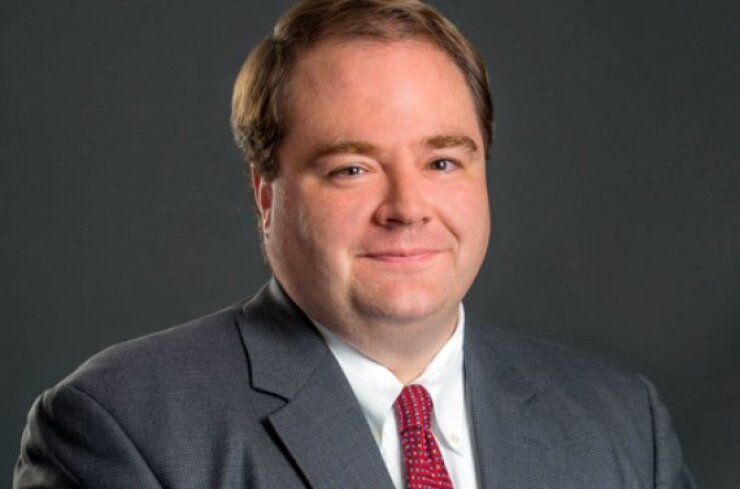Credit union advocacy groups are concerned about a provision in the House version of the 2019 National Defense Authorization Act that excludes credit unions from a change in land lease considerations offered to them on military bases. This sweeping change is only offered to banks after stripping credit unions from the initial proposal.
The Credit Union National Association said it thinks this provision would be a “detriment” to credit unions that serve members of the armed forces, while granting banks easier access to the same bases.

The National Association of Federally-Insured Credit Unions, which has been working closely with Defense Credit Union Council, has also expressed its concerns over the provision.
CUNA noted that, at present, such things as the furnishing of office space and land to on-base credit unions is governed by Section 124 of the Federal Credit Union Act. Moreover, while this language exempts on-base credit unions from costs related to leases, utilities and services on military bases, credit unions must certify 95 percent of the members served on bases are tied to the military and/or federal employees.
The problem arises from language used in the legislation. Specifically, Section 2808 of the House version of NDAA was intended to treat federal or state-chartered insured depository institutions equally with respect to the financial terms of leases, services, and utilities. However, the final House amendment included a definition of “insured depository institutions” that excludes credit unions.

“While we believe this was an unintended drafting error, the issue was not able to be resolved prior to House passage,” wrote CUNA President and CEO Jim Nussle in a letter to Senate Armed Services Committee Chairman Sen. John McCain (R-Ariz.), Ranking Member Sen. Jack Reed (D-R.I.), and member Sen. James Inhofe (R-Okla.), House Armed Service Committee Chair Rep. Mac Thornberry (R-Texas) and Ranking Member Rep. Adam Smith (D-Wash.). “The Senate version of the legislation contains no similar provision. Therefore, we oppose the section as adopted by the House and ask that it be removed during conference.”
Similarly, in a joint letter dated July 16 from NAFCU and DCUC to the aforementioned lawmakers, NAFCU President Dan Berger and DCUC President Anthony Hernandez wrote that Section 2808 of the House NDAA bill contains a provision that would require the Department of Defense to allow all banks to operate “rent free” on military installations.

“Through a years-long series of discussions with DoD, and through the enactment of an amendment to the Federal Credit Union Act in 2006, DoD has the discretionary authority to afford space on military bases at a nominal rate to credit unions provided that they meet certain statutory and regulatory requirements regarding the provision of financial services in the on-base facility,” they wrote. “While DoD has chosen to do so for credit unions, they are not required to do so, as they would be for banks under Section 2808.”
Berger and Hernandez said they recognized the “important role” both credit unions and banks can play for men and women in the military in the provision of traditional financial services and in protecting troops from “predatory lenders.” However, they remain concerned that the language providing "free rent" in Section 2808 for banks goes “well beyond the authority” provided to DoD regarding credit union leases, and would “disadvantage” credit unions.
“Like banks, many credit unions have also left bases in the past 10 years – even with the ‘free’ lease provision,” they wrote. “This issue is a complex one. We are concerned that all parties that could be impacted by Section 2808, including the DoD and credit unions, have not had adequate time to gauge the full impact of the specific statutory language the banks seek. Accordingly, we ask that you hold off on enacting this provision into law until all of the affected parties can agree on a path forward that is truly in the best interest of our armed forces.”
Brad Thaler, vice president of legislative affairs at NAFCU, told Credit Union Journal the provision will not change the ability of defense-related credit unions to receive nominal fee leases as Congress continues to hash out details of NDAA.

Indeed, Thaler added, the NDAA that will be submitted to Congress will not change the fact that credit unions are allowed to keep nominal lease spaces in federal buildings and on military bases.
Thaler also said that while the legislation will have no impact with respect to credit union leases, NAFCU does not support the military bank lease provision since it could grant a stronger exception for bank leases.
Anthony Hernandez, president and CEO of DCUC, assured Credit Union Journal that this NDAA provision does not literally mean that credit unions can no longer have branches on US military bases.

“Defense credit unions are still welcome and authorized to operate on base under the auspices of the Military Banking Program,” he explained. “The amendment only applies to military banks providing them with office space and/or land at no cost in consideration for providing financial services to military members. Credit unions offer the same benefits to military members.”
Hernandez indicated that defense-related credit unions are currently provided with office space and/or land -- including ATM placement -- at no cost. The proposed legislation, he said, is aimed at strengthening the military banking program.
A robust Military Banking Program, he added, includes both military banks and defense credit unions.
“Unfortunately, it is harder for military banks to justify continued operations considering the sharp rise in lease costs and pressure to maintain stockholder returns,” Hernandez explained. “In fact, many military banks have already left their military installations, resulting in defense credit unions being the sole financial institution on base. On the surface, this appears to favor defense credit unions. Yet, it is only a matter of time before defense credit unions are similarly affected -- particularly as installations open their gates under public-private partnership arrangements, that is, more people using base services and facilities, and with the rise in community charters (that is, not just DoD-related entities). It is also unclear how this would affect the ‘one-bank/one credit union’ policy going forward.”
Hernandez believes that ultimately, both the military members and their military units could be “negatively affected” with a diminished Military Banking Program.
For instance, he noted, the Defense Department is not authorized to provide financial services. “It is much easier to conduct personal business on base versus taking time off to drive downtown,” he observed. ”Mobile apps are useful, however brick and mortar (with real people) are still important for community purposes. Mobile apps are not as useful in deployment lines, particularly with younger troops getting their financial affairs in order for the first time.”
More importantly, having both a military bank and defense credit union promotes choice and competition for the benefit of the service members, he elaborated.
“The financial readiness and resilience of our troops depend on the continued presence of banks and credit unions on our nation’s military installations,” he said. “In addition to the financial services and support they provide, all on-base financial institutions must provide financial education to everyone on the installation. Given recent changes in the retirement system and its reliance on the market, financial education is vital. Having more resources on base to provide this education is better and prudent.”
The NDAA conference committee is currently considering the amendment and will wrap up its work later in July.





